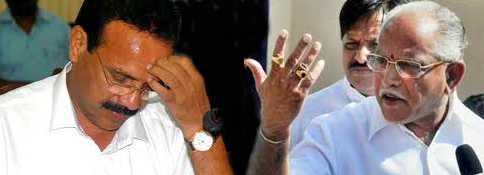
New Delhi, July 1: The BJP's Parliamentary unit will on Sunday decide whether to replace Karnataka Chief Minister Sadananda Gowda with BS Yeddyurappa loyalist Jagadish Shettar.
The decision comes after nine ministers in the Gowda government, including Shettar himself, resigned on Friday demanding change of leadership.
While Gowda refused to accept the resignations, the BJP high command said it would hold talks with party leaders and the rebel ministers and then take a decision.
While BJP General Secretary Dharmendra Pradhan met the ministers on Saturday, sources said it was likely that the party would try to convince Yeddyurappa to wait until the Presidential election was over. They added that it was likely that the party high command would consider making Shettar the deputy CM for the time being, as a compromise formula.
Yeddyurappa has for some time been demanding that Gowda be replaced by Shettar. The former CM was removed from his post following allegations of his involvement in the illegal mining scam.
Supporters of Gowda, however, have said that they will not let him resign. Anand Asnotikar, the state Fisheries Minister, said, "We are supporting Chief Minister Sadananda Gowda. If any decision is taken to remove him, Jaakirholi and I will resign."
He asked, "Why should the CM resign? Is he corrupt? Has he been involved in any scam? If he has to step down, the central leadership will have to give a convincing reason. All these claims that the BJP can win only under Yeddyurappa are false. Under Sadananda Gowda, the BJP won five out of six MLC seats. He is a leader who supports every community and not just any one community."
Meanwhile, the Yeddyurappa camp is in no mood to back down. CM Udassi said, "We have made our decision clear that Jagadish Shettar should be made the CM and that's why we have resigned. When there was allegations against the former excise minister Renukacharaya, Sadananda Gowda immediately ordered a probe. But when there were allegations against Law Minister Suresh Kumar, why didn't he order a probe? It's clear that the CM doesn't trust us and we don't trust him."





Comments
Add new comment